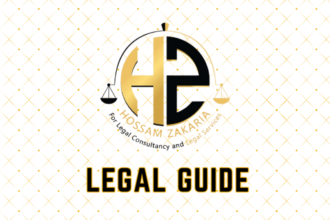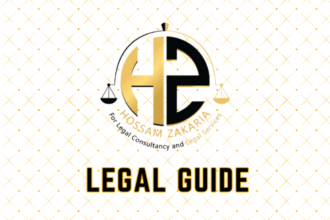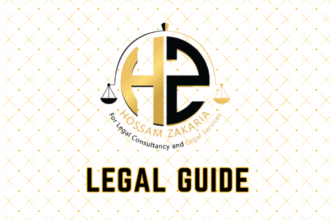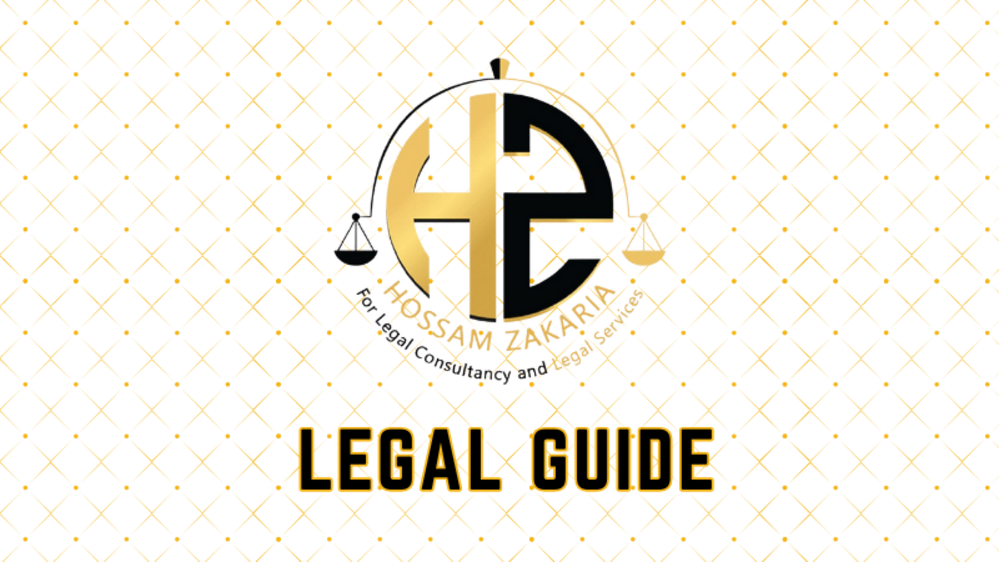Introduction: The Strategic Landscape of UAE Law 2025 Updates for AI and Cybersecurity in Regional Business
In a rapidly evolving digital landscape, the United Arab Emirates continues to set a benchmark for legal innovation and regulatory oversight. The UAE Law 2025 updates, particularly those affecting artificial intelligence (AI) and cybersecurity obligations, usher in a new era for business compliance and strategic risk management—both domestically and for organizations engaging cross-border, especially with Qatar. As digital transformation accelerates and the Middle East positions itself as a leader in smart technologies, these legal changes are of immediate importance for UAE-headquartered businesses, Qatari enterprises operating in the Emirates, and regional stakeholders navigating compliance and opportunity in the Gulf.
This expert analysis provides a comprehensive breakdown of the UAE Law 2025 updates concerning AI and cybersecurity responsibilities, with actionable guidance for executives, HR managers, compliance officers, and legal professionals. Drawing from official sources—the UAE Ministry of Justice, MOHRE, the Government Portal, and the Federal Legal Gazette—this article details regulatory expectations, compares old and new frameworks, clarifies cross-border impact (especially in Qatar business), and outlines robust strategies for legal compliance.
AI and cybersecurity have now moved to the forefront of boardroom agendas. The rising complexity of technological adoption, combined with significant penalties for non-compliance and increasing regional regulatory harmonization, make it vital for organizations to understand not only the letter of the law but also its intention and practical application. This article sets out the foundation for informed, proactive response.
Table of Contents
- Overview of UAE Law 2025 Updates: Context and Regulatory Objectives
- Detailed Analysis of New AI and Cybersecurity Provisions
- Comparative Table: Key Changes in UAE AI and Cybersecurity Laws
- Cross-Border Implications for Qatar Businesses in the UAE
- Case Studies and Hypotheticals: Real-World Application
- Risks and Challenges: Non-Compliance
- Compliance Strategies and Best Practices
- Conclusion and Forward-Looking Perspective
Overview of UAE Law 2025 Updates: Context and Regulatory Objectives
The Evolution of UAE Technology Law
The UAE has established itself as a regional leader in digital transformation, smart city initiatives, and AI-powered governance. Recognizing the transformative potential—and attendant risks—of advanced technologies, UAE authorities have accelerated the development of legal frameworks that govern their application and secure digital assets.
Key legal instruments influencing the 2025 landscape include:
- Federal Decree-Law No. 34 of 2021 (on Combatting Rumours and Cybercrimes) – the foundational framework for cyber offences and data security obligations.
- Cabinet Resolution No. 21 of 2022 (on Data Protection) – aligning the UAE with global data governance standards.
- Federal Law No. 44 of 2024 (on Regulating Artificial Intelligence) – establishing the nation’s pioneering AI regulatory regime.
The 2025 updates consolidate and expand these frameworks, clarifying obligations for AI integration, enhancing cybersecurity mandates for all regulated entities, and introducing significant penalties for non-compliance.
Objectives of the 2025 Legal Updates
- Strengthen AI governance, ensuring ethical and responsible deployment.
- Mandate enhanced cybersecurity protections for critical sectors and digital infrastructure.
- Harmonize regulatory obligations for local and cross-border businesses operating in or trading with the UAE.
- Empower public-private cooperation in threat reporting, incident response, and digital resilience.
Detailed Analysis of New AI and Cybersecurity Provisions
AI Governance Provisions
The core of the 2025 updates is enshrined in Federal Law No. 44 of 2024 (on Regulating Artificial Intelligence) (Official Gazette, 2024). The law creates a comprehensive system for the oversight of AI systems in all high-impact sectors, including banking, healthcare, energy, and public services.
- Registration Requirements: All AI systems deployed in critical sectors must be registered with the National AI Authority (NAA), with mandatory disclosure of intended use, safety measures, and mitigation protocols.
- Algorithmic Transparency: Providers and operators must maintain clear documentation on AI decision-making processes and be able to demonstrate effective governance upon inspection.
- Mandatory Impact Assessments: Prior to deployment, businesses must conduct and file AI Impact Assessments (AIIA) with regulatory authorities.
- Bias and Discrimination Controls: AI systems must be regularly tested for discriminatory outcomes, with evidence of corrective measures in cases of bias.
- Cross-Border Data Considerations: Special provisions apply to cross-border data transfers, requiring data localization or specific approval for transfers to third countries, including those relating to Qatar-based data centers.
Cybersecurity Requirements
In parallel, amendments to Federal Decree-Law No. 34 of 2021 and new technical standards under the UAE National Electronic Security Authority (NESA) elevate expectations for digital risk management:
- Mandatory Cybersecurity Framework Adoption: All regulated entities must implement NESA’s updated cybersecurity framework, which includes multi-layered controls, employee training, and periodic audits.
- Incident Reporting: Cyber incidents, including data breaches or unauthorized system access, must be reported within six hours to NESA and sector regulators.
- Third-Party Vendor Risk: Businesses are accountable for due diligence and contractual obligations covering vendors—both domestic and abroad—who handle sensitive data or manage critical infrastructure.
- Enhanced Penalties: Financial penalties have increased for non-compliance, and personal liability now extends to directors and officers.
Guidance for Multinational Entities: Qatar Business Context
Qatari businesses operating in the UAE or servicing UAE clients must ensure compliance with these regulations, even when operating remotely or via cloud/AI services hosted outside the Emirates. Non-local businesses are subject to extraterritorial reach of UAE law where processing data of UAE citizens or dealing with AI that impacts UAE consumers.
Comparative Table: Key Changes in UAE AI and Cybersecurity Laws
| Key Aspect | Pre-2025 Framework | 2025 Updates (Applicable Law) |
|---|---|---|
| AI Regulation | No dedicated federal law; sectoral guidelines only. | Federal Law No. 44 of 2024 obliges registration, impact assessment, and transparency for all significant AI deployments. |
| Algorithmic Accountability | Self-regulated disclosures, limited oversight. | Mandatory transparency and explainability, with regulatory audits and ongoing impact testing. |
| Cyber Incident Reporting | Variable sector requirements, often discretionary or delayed reporting accepted. | Uniform six-hour reporting timeline to regulators post-incident, regardless of sector. |
| Vendor Risk Management | Minimal; mostly contractual clauses. | Mandatory due diligence, documented risk assessments, and supply chain compliance checks. |
| Director/Officer Liability | Limited; usually organizational only. | Personal liability of directors/officers for willful or negligent non-compliance with AI/cyber rules. |
| Cross-Border Data Transfer | No data localization, fragmented controls. | Data localization in critical sectors; cross-border transfers require NAA approval. |
| Penalty Structure | Lower fines, limited enforcement scope. | Increased fines (up to AED 10 million), additional criminal sanctions, and mandatory public disclosure of breaches. |
Cross-Border Implications for Qatar Businesses in the UAE
Navigating Dual Regulatory Obligations
For Qatari businesses with a footprint in the UAE or providing AI/cyber services in the Emirates, the 2025 law updates present a dual-regulatory challenge:
- Extraterritorial Enforcement: UAE authorities assert jurisdiction over foreign businesses whose digital activities or AI-driven services affect UAE users, citizens, or infrastructure.
- Local Representation: The 2025 updates reinforce requirements for appointing a local representative responsible for legal compliance and incident communications.
- Cooperation with UAE Authorities: Bilateral protocols may require timely sharing of information with UAE regulators in cases of cross-border breaches or digital incidents.
Practical consultancy insight: Qatari businesses are strongly advised to assess whether their service flows, data processing activities, or AI-driven solutions fall within the expanded scope of UAE jurisdiction. Joint ventures, partnerships, and contractual arrangements should include explicit provisions on compliance, liability allocation, and regulatory notification duties.
Case Studies and Hypotheticals: Real-World Application
Case Study 1: AI in Financial Services
Scenario: A Qatari fintech firm deploys a credit-scoring AI platform to serve UAE customers, with data hosted in Qatar. Under Federal Law No. 44 of 2024, the business must:
- Register its AI platform with the NAA;
- Conduct and submit an AI Impact Assessment;
- Institute controls for algorithmic transparency and anti-bias monitoring;
- Apply for approval to transfer customers’ data cross-border;
- Ensure contractual compliance for any third-party data processors involved.
Non-compliance risk: Failure to comply could result in platform suspension, multi-million dirham fines, and personal liability for the firm’s UAE-resident directors.
Case Study 2: Cybersecurity Incident—Healthcare Sector
Scenario: A UAE subsidiary of a Doha-based healthcare group suffers a ransomware incident impacting patient data. Immediate actions under Federal Decree-Law No. 34 of 2021 (as amended):
- Reporting the incident to NESA within six hours;
- Informing affected individuals per data protection rules;
- Reviewing and updating security protocols, as regulators will audit post-incident;
- Potential government-mandated disclosure to the public to maintain trust.
Non-compliance risk: Delayed or incomplete reporting could trigger escalated penalties, forced audit costs, and, for repeat offenders, revocation of operating licenses.
Case Study 3: Vendor Risk and Contractual Obligations
Scenario: A UAE-based e-commerce platform procures chatbot technology from a Qatari AI software vendor. Under 2025 law updates:
- The UAE entity must ensure the vendor complies with local AI registration, assessment, and algorithmic audit requirements.
- Both parties are responsible for ensuring cybersecurity practices align with NESA’s framework.
- Contracts must specify roles, data protection duties, and notification mechanisms in case of incidents.
Failure to integrate these legal provisions into contracts and operational procedures exposes both buyer and vendor to joint liability.
Risks and Challenges: Non-Compliance
Legal Liabilities and Enforcement Dynamics
The 2025 updates reflect a new enforcement philosophy—combining high financial penalties with public accountability and personal liability for organizational leaders. This approach contrasts with the more remedial or guidance-based enforcement of prior years.
- Penalty Escalation: Fines for egregious breaches (e.g., reckless AI deployments or failure to report incidents) can reach up to AED 10 million, with criminal sanctions for intentional misconduct.
- Market Restrictions: Repeat or unresolved breaches may result in suspension of operating licenses, technology bans, and exclusion from government tenders.
- Reputational Harm: Mandatory publication of incidents can lead to significant reputational risk, brand loss, and customer attrition.
- Cross-Border Enforcement: Bilateral legal agreements allow for mutual assistance, facilitating enforcement even for foreign-based entities without a UAE branch.
Challenges in Practical Compliance
- Resource Demands: Smaller entities face challenges in implementing comprehensive AI and cybersecurity controls, while multinational organizations struggle with harmonization across jurisdictions.
- Vendor Due Diligence: Ensuring vendors and subcontractors uphold required standards now represents both a legal and reputational imperative.
- Legacy Systems Risks: Older IT systems not designed for robust cybersecurity or AI transparency pose latent risks that may create unforeseen compliance gaps.
Suggested Visual: Penalty Comparison Chart: Visualize fines, enforcement mechanisms, and liability expansions for quick stakeholder review.
Compliance Strategies and Best Practices
Organizational Readiness Checklist
For enterprise leadership and compliance professionals, a structured response is essential. Key steps include:
| Step | Action | Responsible |
|---|---|---|
| 1 | Map all AI and digital assets deployed in UAE or for UAE clients; identify cross-border data flows. | CIO, Legal, IT |
| 2 | Register significant AI systems with the National AI Authority and file required impact assessments. | Legal, Compliance |
| 3 | Implement or update cybersecurity controls to align with NESA updates (access controls, monitoring, incident response). | IT, Information Security Officer |
| 4 | Audit and document all third-party vendor relationships; revise contracts to cover compliance obligations. | Procurement, Legal |
| 5 | Train staff on AI/cybersecurity obligations and establish clear protocols for breach notification and reporting. | HR, Legal, CISO |
| 6 | Assign a local compliance representative for regulatory communications. | Board, Company Secretary |
Practical Recommendations
- Scenario Planning: Conduct tabletop exercises simulating AI failure or major cyber incidents, ensuring clear internal coordination and stakeholder management.
- Continuous Monitoring: Deploy real-time monitoring tools and establish data logging to facilitate immediate incident detection and rapid response.
- Proactive Engagement: Maintain active dialogue with UAE regulators and industry groups to remain abreast of evolving interpretations and expectations.
- Documentation: Keep detailed, up-to-date records of compliance measures, assessments, and actions—these serve as critical evidence in case of a regulatory audit or investigation.
Suggested Visual: Compliance Process Flow Diagram: Present visually the end-to-end compliance management steps.
Conclusion and Forward-Looking Perspective
The UAE Law 2025 updates on AI and cybersecurity reflect the nation’s determination to shape a secure, ethical, and innovation-friendly digital economy. The new legal landscape demands not only stricter technical controls and transparency measures but also a culture of governance that pervades the organization and its vendor network. As regional relationships evolve—including growing UAE-Qatar commercial activity—cross-border businesses must manage legal risks with equal diligence and agility.
Adopting best practices—from early registration of AI assets to proactive vendor governance and robust incident management—will not only ensure compliance but also enhance trust with UAE stakeholders and regulators. As AI and cybersecurity laws become both a defensive necessity and a source of competitive strength, progressive organizations will see compliance not as a burden but as a strategic advantage in the Gulf’s integrated digital marketplace.
For businesses navigating these changes, ongoing legal counsel, frequent internal reviews, and transparent communication with authorities will be key. The regulatory environment will likely continue to mature, placing even greater emphasis on organizations that demonstrate leadership in digital trust and responsible technology deployment.
For tailored guidance on how these updates may affect your specific operations or partnerships, engaging with accredited legal consultants remains the most effective pathway to confident compliance and opportunity capture.



